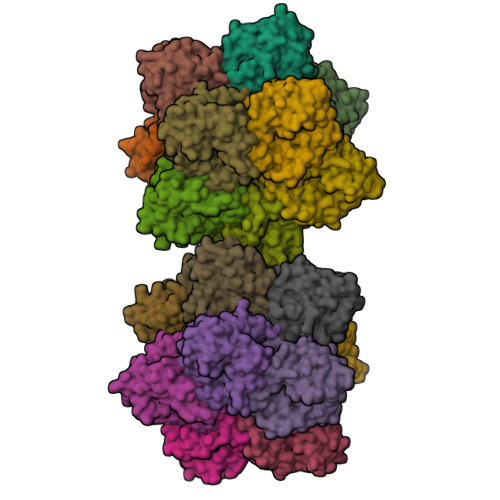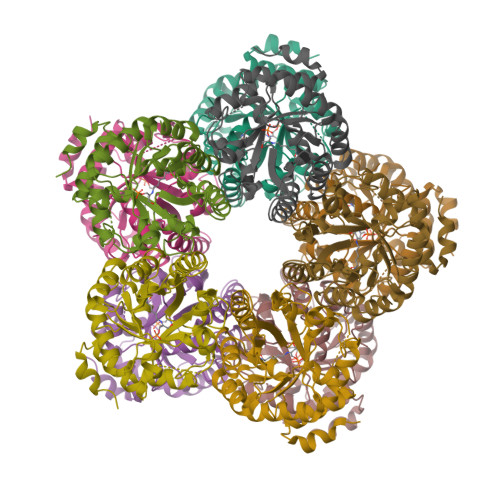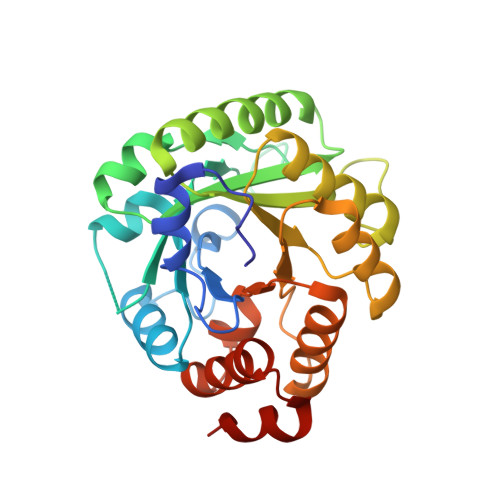Structure of 2-amino-3,7-dideoxy-D-threo-hept-6-ulosonic acid synthase, a catalyst in the archaeal pathway for the biosynthesis of aromatic amino acids.
Morar, M., White, R.H., Ealick, S.E.(2007) Biochemistry 46: 10562-10571
- PubMed: 17713928
- DOI: https://doi.org/10.1021/bi700934v
- Primary Citation of Related Structures:
2QJG, 2QJH, 2QJI - PubMed Abstract:
Genes responsible for the generation of 3-dehydroquinate (DHQ), an early metabolite in the established shikimic pathway of aromatic amino acid biosynthesis, are absent in most euryarchaeotes. Alternative gene products, Mj0400 and Mj1249, have been identified in Methanocaldococcus jannaschii as the enzymes involved in the synthesis of DHQ. 2-Amino-3,7-dideoxy-d-threo-hept-6-ulosonic acid (ADH) synthase, the product of the Mj0400 gene, catalyzes a transaldol reaction between 6-deoxy-5-ketofructose 1-phosphate and l-aspartate semialdehyde to yield ADH. Dehydroquinate synthase II, the product of the Mj1249 gene, then catalyzes deamination and cyclization of ADH, resulting in DHQ, which is fed into the canonical pathway. Three crystal structures of ADH synthase were determined in this work: a complex with a substrate analogue, fructose 1,6-bisphosphate, a complex with dihydroxyacetone phosphate (DHAP), thought to be a product of fructose 1-phosphate cleavage, and a native structure containing copurified ligands, modeled as DHAP and glycerol. On the basis of the structural analysis and comparison of the enzyme with related aldolases, ADH synthase is classified as a new member of the class I aldolase superfamily. The description of the active site allows for the identification and characterization of possible catalytic residues, Lys184, which is responsible for formation of the Schiff base intermediate, and Asp33 and Tyr153, which are candidates for the general acid/base catalysis.
Organizational Affiliation:
Department of Chemistry and Chemical Biology, Cornell University, Ithaca, New York 14853, USA.




















